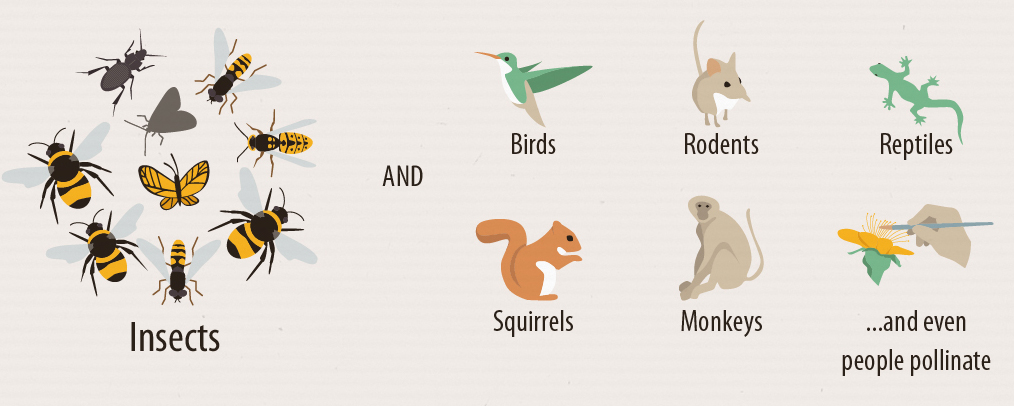
A pollinator is an animal or insect that carries pollen from the male part of a flower to the female part. This process is necessary for plants to reproduce and produce seeds, fruits, and young plants.
Birds, bats, bees, butterflies, beetles, and other small mammals that pollinate plants are responsible for bringing us one out of every three bites of food. They also sustain our ecosystems and produce our natural resources by helping plants reproduce.
Pollinating animals travel from plant to plant carrying pollen on their bodies in a vital interaction that allows the transfer of genetic material critical to the reproductive system of most flowering plants – the very plants that
They bring us countless fruits, vegetables, and nuts, ½ of the world’s oils, fibers and raw materials; prevent soil erosion, and increase carbon sequestration
Restoring native plant habitat is vital to preserving biodiversity in the Season of Creation. Each patch of native habitat becomes part of a collective effort to nurture and sustain the living landscape for insects, birds, other animals, and humans.
Reminiscent of the Victory Gardens promoted by the government during World War I and II, the Pollinator Garden effort is intended to help cover food shortages, only this time, for insects. The goal of the effort is to provide sufficient food (nectar and pollen) to reverse the decline of pollinators, bees in particular, and to provide habitat (milkweed) for monarch butterflies.
Pollinator decline is attributed primarily to loss of habitat and to the use of pesticides. For bees, the Varroa mite and Colony Collapse Disorder are also causes of decline. Habitat loss is due not only to the conversion of prairie and meadow to cropland but also to the use of herbicides that eradicate wildflowers in the agricultural and ornamental landscape.
In response to the alarming decline of pollinators, the US government took action. In 2008, the US Farm Bill made funding available for research on bees and mandated that conservation programs support habitat restoration and management for pollinators. In 2015, the Obama Administration released National Strategy to Promote the Health of Honey Bees and Other Pollinators. Through public-private partnerships, the primary goals of the strategy are to reduce honeybee colony losses, increase populations of the eastern monarch butterfly, and to restore or enhance seven million acres of land for pollinators over the five years.
